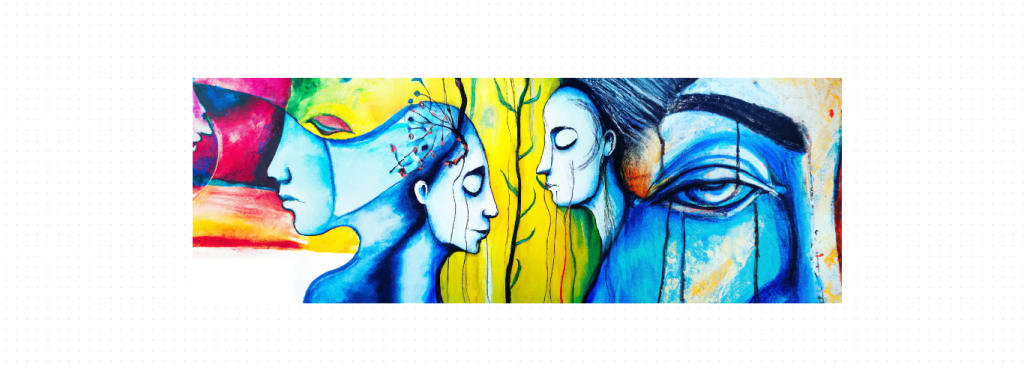
Empaths are often seen as highly intuitive individuals who possess a unique ability to tune in to the emotions of others. They are empathic listeners, who are sensitive to verbal and non-verbal cues, which allows them to understand others on a deep emotional level. While this can be a powerful gift, it can also be a challenge, especially in a world that is becoming increasingly disconnected from emotions.
One of the main challenges of being an empath is that it can be difficult to set boundaries. Empaths have a natural tendency to absorb the emotions of others, and this can be overwhelming at times. They may find themselves feeling drained and exhausted after being around others for an extended period of time. This can be particularly challenging in situations where they are required to be around others for work or social obligations. It’s important for empaths to learn how to set healthy boundaries, so they can protect their energy and avoid burnout.
Another challenge is that empaths are often drawn to people who are emotionally needy or draining. They have a natural desire to help others, and this can sometimes lead them to attract people who are looking for someone to rescue them. This can be challenging, as it can be difficult to balance caring for others with caring for oneself. Empaths need to learn how to distinguish between healthy relationships and those that are potentially harmful.
Additionally, empaths often feel like they don’t fit in. In a society that values logic and reason over emotions, empaths can feel like they are out of place. They may feel like they are too sensitive or emotional, which can lead to feelings of isolation and loneliness. It’s important for empaths to find a community of like-minded individuals who can provide support and understanding.
Another challenge that empaths face in a world that is becoming increasingly disconnected from emotions is the prevalence of emotional repression. In many cultures, emotions are viewed as a sign of weakness, and people are often taught to suppress their feelings. This can make it difficult for empaths to connect with others on an emotional level, as they may be met with resistance or defensiveness when trying to engage with others about their feelings. This can also make it difficult for empaths to express their own emotions, as they may feel like they will be judged or dismissed.
Furthermore, empaths may struggle with the intense emotions that they experience. Empaths are often highly sensitive to the emotions of others, and this can lead to feeling overwhelmed, anxious, or depressed. They may also feel a sense of responsibility to help others with their emotions, which can be a heavy burden to bear. It’s important for empaths to take care of their own emotional well-being, by setting boundaries, practicing self-care, and seeking support when needed.
On the positive side, being an empath can also be a gift in a world that is becoming increasingly disconnected from emotions. Empaths have a unique ability to connect with others on a deep emotional level, and this can help to build more meaningful relationships. They are often compassionate and empathetic, which can make them excellent caregivers, therapists, and healers. Empaths can also be highly intuitive and creative, which can lead to innovative problem-solving and ideas.
Finally, empaths may struggle with their own emotions. Because they are so attuned to the emotions of others, it can be difficult for them to separate their own feelings from those of others. They may find themselves feeling overwhelmed by their own emotions, or unsure of what they are feeling. It’s important for empaths to take time for self-care, and to practice mindfulness and meditation to help them better understand their own emotional experiences.
One of the challenges that empaths face is the impact of social media and technology on emotional connection. While social media can be a tool for staying connected with friends and family, it can also be a source of emotional disconnection. Many people use social media to present a curated version of their lives, which can create a sense of inadequacy or comparison for others. Empaths may also feel a sense of emotional overload from the constant barrage of news and information on social media, which can lead to feelings of anxiety or overwhelm.
In addition, the fast-paced nature of modern life can make it difficult for empaths to find time for self-care and reflection. The demands of work, family, and social obligations can leave little time for quiet introspection or downtime. Empaths may need to intentionally create space in their lives for self-care, by prioritizing activities that nourish their emotional well-being, such as journaling, meditating, or spending time in nature.
Another challenge that empaths face is the stigma surrounding mental health. Despite progress in recent years, there is still a pervasive belief that mental health struggles are a sign of weakness or personal failure. Empaths who struggle with anxiety, depression, or other mental health issues may feel ashamed or stigmatized, which can make it difficult to seek help or support. It’s important for empaths to remember that mental health struggles are a common human experience, and seeking help is a sign of strength.
Finally, empaths may struggle with the impact of societal injustices and global crises on their emotional well-being. Empaths are often highly attuned to the suffering of others, and may feel deeply impacted by issues such as poverty, racism, and environmental degradation. It’s important for empaths to find ways to channel their compassion into positive action, while also taking care of their own emotional well-being.
In conclusion, the challenges of being an empath in a world that is becoming increasingly disconnected from emotions are complex and multifaceted. Empaths may struggle with boundary-setting, navigating relationships, feeling like they don’t fit in, understanding their own emotions, emotional repression, intense emotions, impact of technology and social media, lack of self-care, mental health stigma, and global crises. However, with support, self-care, and a commitment to personal growth, empaths can learn to thrive in a world that needs their unique gifts more than ever. Being an empath can be both a gift and a challenge. While empaths have a unique ability to tune in to the emotions of others, they may also struggle with boundary-setting, navigating relationships, feeling like they don’t fit in, and understanding their own emotions. With self-care, healthy boundaries, and support from a community of like-minded individuals, empaths can learn to embrace their sensitivity as a gift and use it to help others.
About the Creator
Zaha Zed
Zaha is an English student and writer and writes on social issues,She also likes to write tragic stories. here is look. ENJOY!!!






Comments
There are no comments for this story
Be the first to respond and start the conversation.